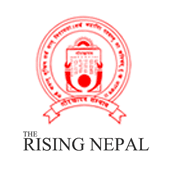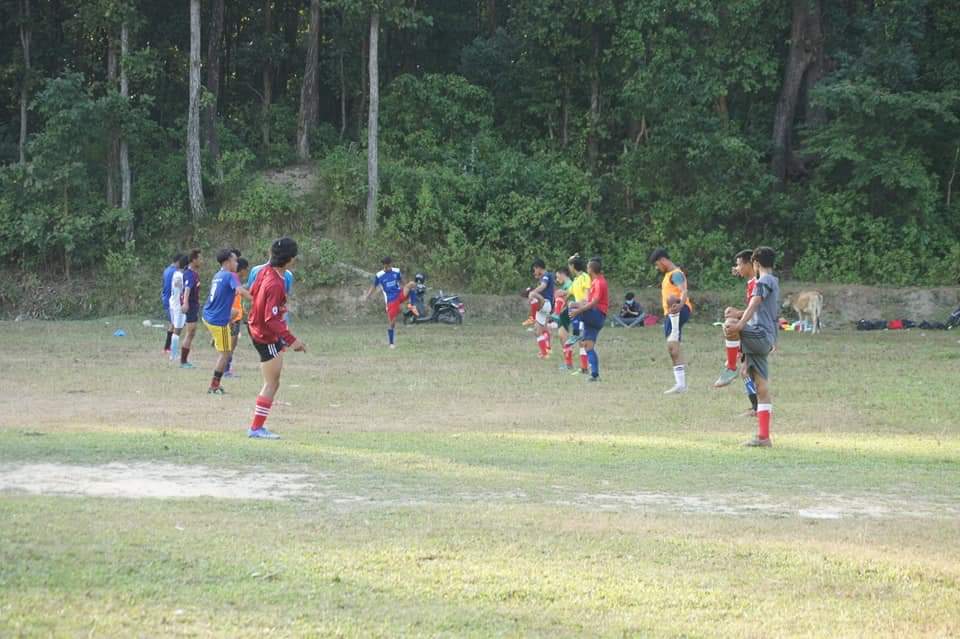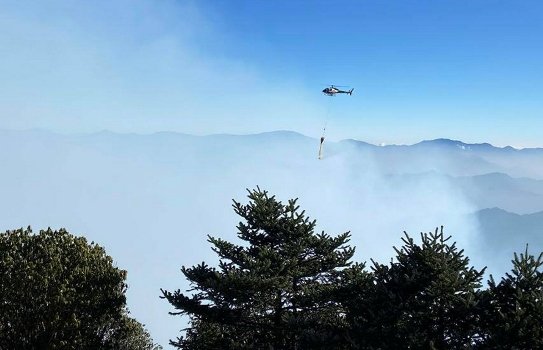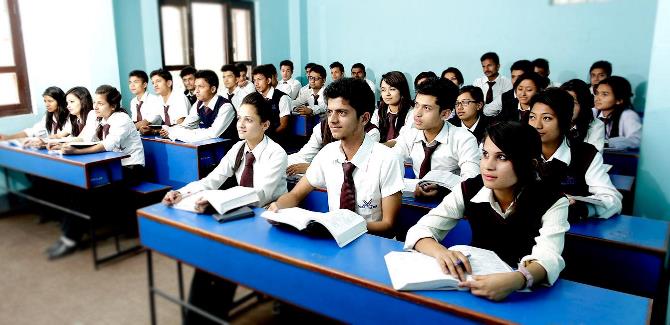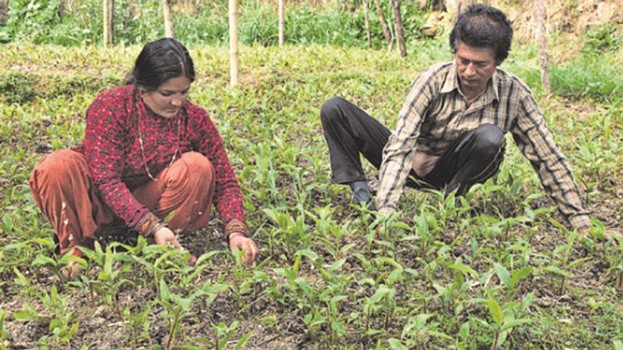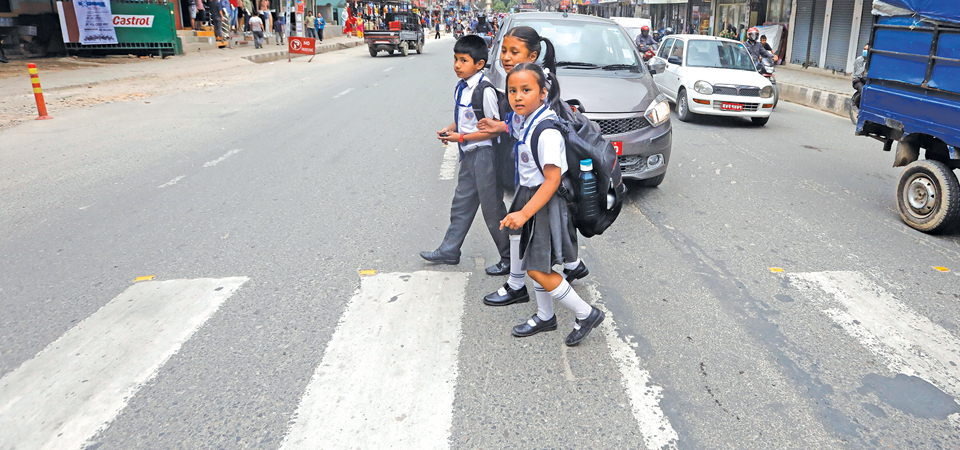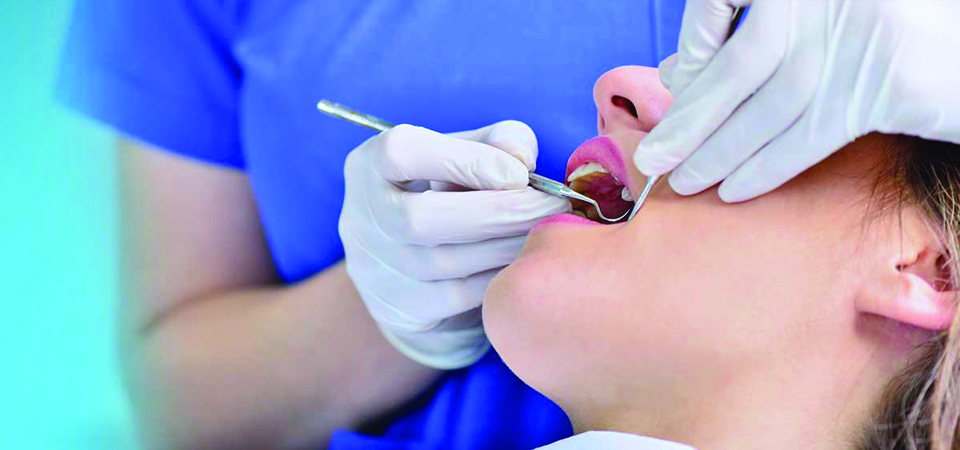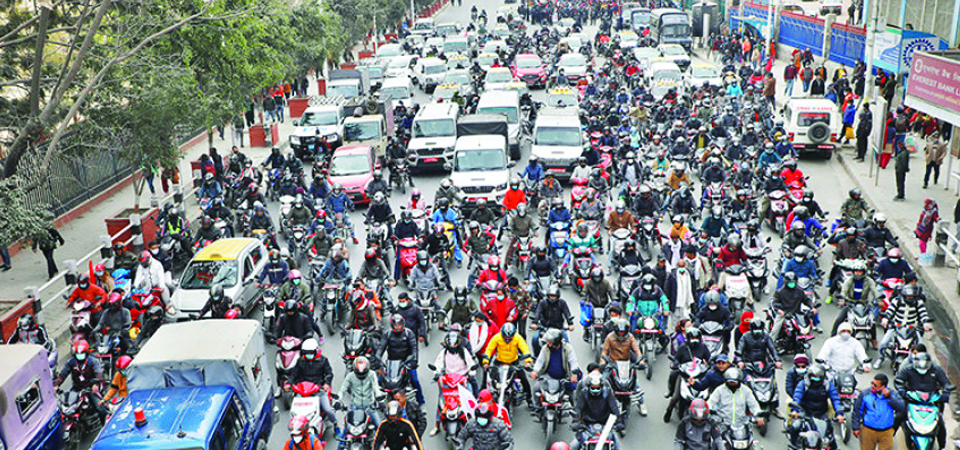Govt plans to enroll all Nepalis in health insurance scheme

By Nayak Paudel
Kathmandu, Apr. 7: Once the Minister for Health and Population Hridayesh Tripathi inaugurates the Health Insurance Scheme in six districts virtually on Wednesday, the scheme will reach 75 districts in the country.
On the occasion of the Fifth Health Insurance Day, Minister Tripathi is set to inaugurate the scheme in Taplejung, Bara, Sarlahi, Dolakha, Manang and Mustang districts. The government started the scheme five years ago on April 7, 2016 from Kailali district.
According to the Health Insurance Board (HIB), after the scheme’s inauguration on Wednesday, only two districts -- Kathmandu and Lalitpur -- will be left to cover.
Through the virtual programme, the HIB also plans to provide the scheme’s detail through government’s Nagarik App and SMS services in a bid to improve notice and alert systems.
“We are yet to fix the date for the two districts because there are some preliminary processes underway. However, we are sure that the scheme will reach all 77 districts before the end of current fiscal year,” said Dr. Shenendra Raj Upreti, HIB chairperson.
Aiming for that goal, the board is now doing the needful to leave no Nepali uninsured, helping the government in fulfilling its assurance of Universal Health Coverage.
As per the data provided by the HIB, a total of 3,742,656 individuals from 1,126,081 families have registered under the scheme from 69 districts recently. As the public need to renew the scheme annually by paying a premium in accordance with their family size, the data show that the rate of renewal is not in line with the expectation.
“Only about 70 per cent of individuals are renewing the scheme. However, the government is paying premium of many families from that 70 per cent,” said Dr. Damodar Basaula, HIB executive director. The government pays the premium of those with Poor ID cards, senior citizens above 70, HIV-infected individuals, permanently disabled individuals, leprosy patients and MDR TB patients. It pays half the premium of female health workers.
The data show 460,778 poor individuals, 423,162 senior citizens, 13,509 HIV patients, 53,624 permanently disabled individuals, 1,973 leprosy patients, 1,566 MDR TB patients and 47,844 female health workers are recently enrolled in the scheme.
“We are committed to reducing the stress of out-of-pocket expenditure for the public in health-related services. Hundreds of medical services (including medicines) can be availed through the scheme. Targeting all districts, we will now enhance our focus on enrolling all Nepalis into the scheme,” said Upreti.
According to the HIB officials, ensuring health insurance of all Nepalis is enshrined in Nepal’s constitution.
The HIB, however, has several challenges to overcome if it is to get all Nepalis registered under the scheme, especially renewing it
annually.
“We will make the public aware on the benefits of the scheme once we reach their districts. Sectorial coordination is what we need at the moment to achieve that goal,” said Basaula.
Because of the unavailability of doctors, health equipment and health centres in several area of the country, particularly rural areas, many people are reluctant to get enrolled in the scheme. Some people even think that they won’t get sick, so it would be a waste to pay for the premium, compounding the challenges in bringing the scheme to all Nepalis.
An annual premium of Rs. 3,500 enables a family of five or less to avail health services up to Rs 100,000. For a family of more than five, the premium increases by Rs. 700 for each added individual, and the service amount by Rs. 20,000.
“We don’t know for sure how long it will take but we are committed to bringing all Nepalis under the scheme. As we strive towards that goal, we request everyone to help us in whatever way they can. We ask the government to help the Poor ID card service reach all districts and upgrade our health centers across the country,” said Basaula.
Recent News

Do not make expressions casting dout on election: EC
14 Apr, 2022
CM Bhatta says may New Year 2079 BS inspire positive thinking
14 Apr, 2022
Three new cases, 44 recoveries in 24 hours
14 Apr, 2022
689 climbers of 84 teams so far acquire permits for climbing various peaks this spring season
14 Apr, 2022
How the rising cost of living crisis is impacting Nepal
14 Apr, 2022
US military confirms an interstellar meteor collided with Earth
14 Apr, 2022
Valneva Covid vaccine approved for use in UK
14 Apr, 2022
Chair Prachanda highlights need of unity among Maoist, Communist forces
14 Apr, 2022
Ranbir Kapoor and Alia Bhatt: Bollywood toasts star couple on wedding
14 Apr, 2022
President Bhandari confers decorations (Photo Feature)
14 Apr, 2022
